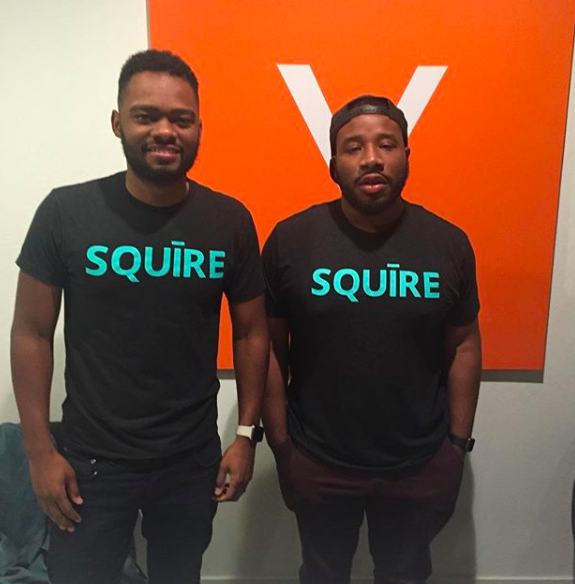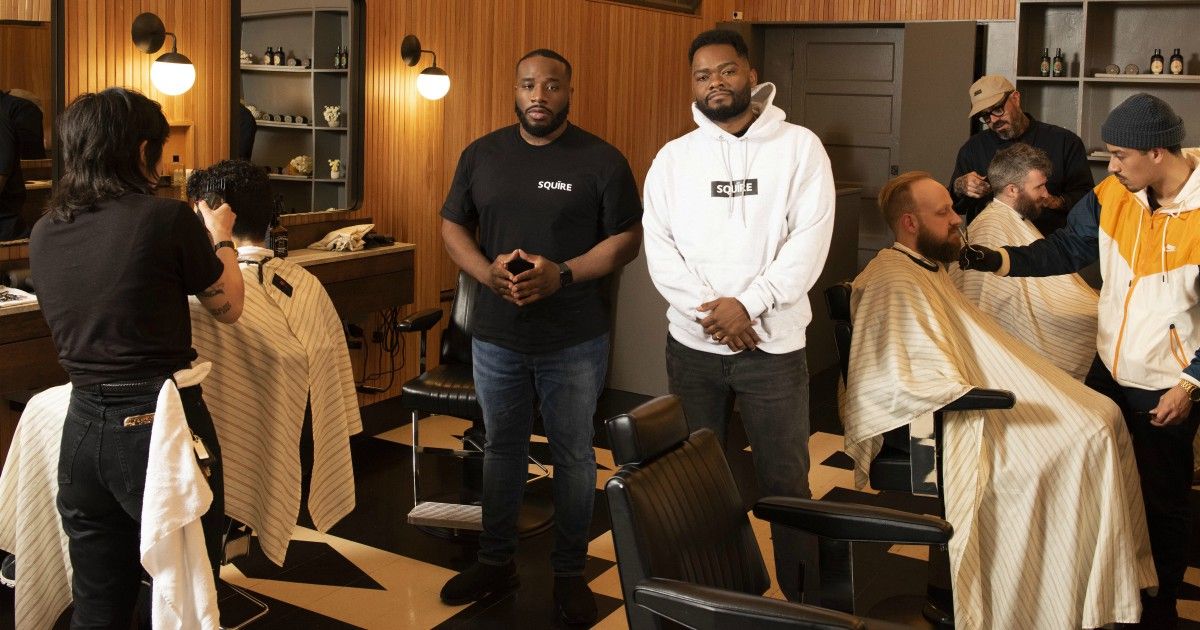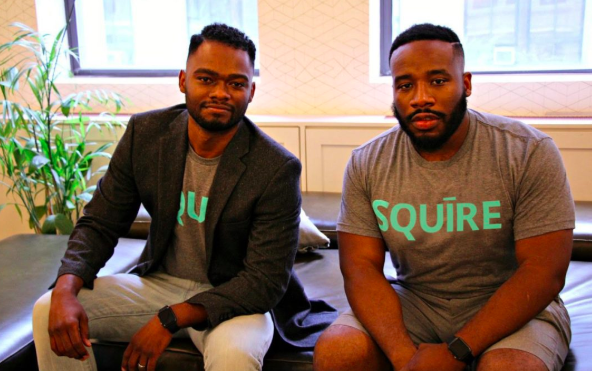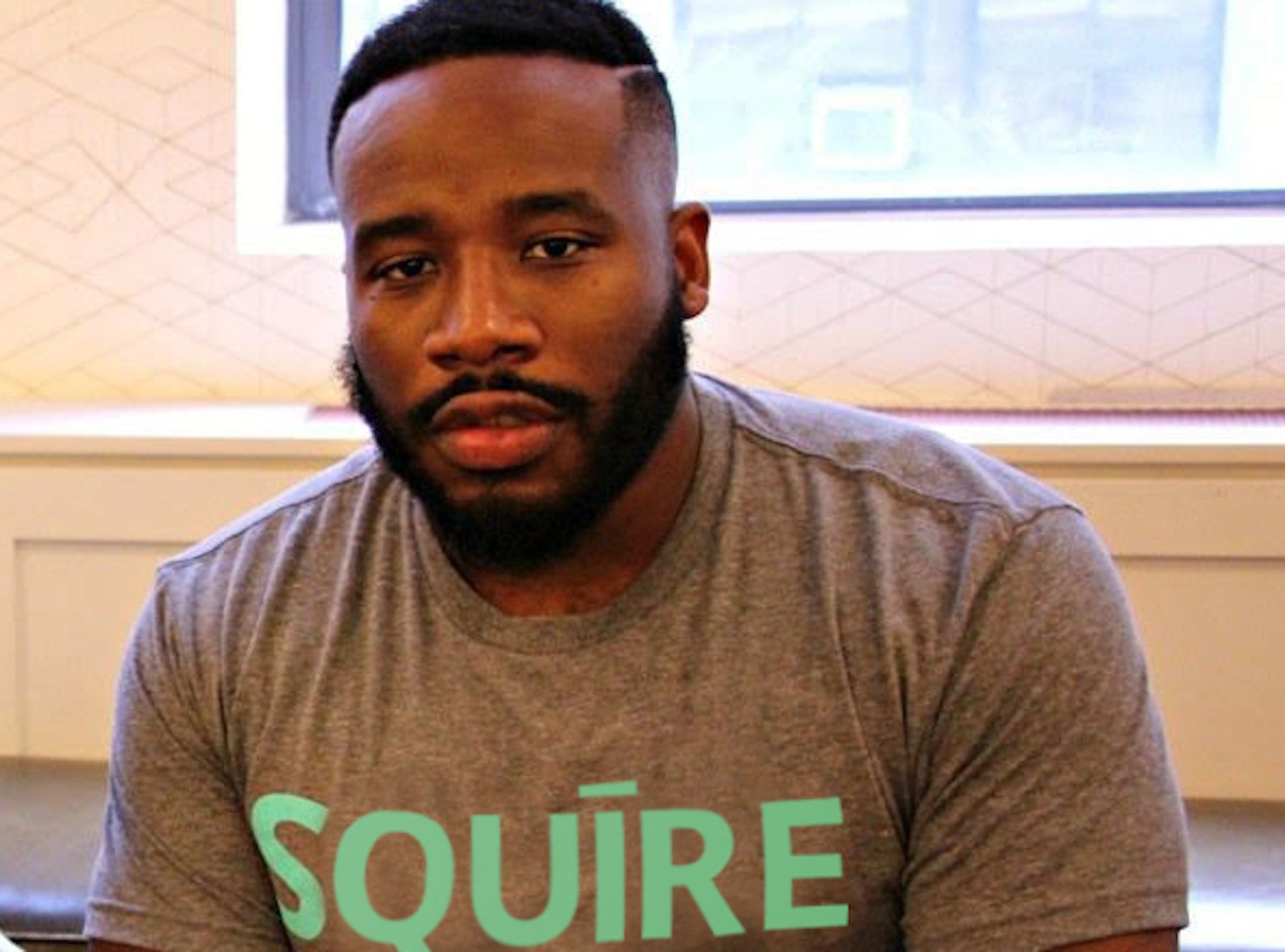One of the biggest reasons why startups fail to launch (or fail after launching) is because of money.
Having access to capital is necessary for any business owner, no matter the industry. Unfortunately for Black entrepreneurs like Dave Salvant and many of us, getting access to capital is often harder than expected.
If you haven’t heard of Dave, he is arguably one of the greatest, modern-day leaders in the tech space. Dave is an example of someone that is truly self-made, and is proof that with a scalable idea, a lot of hustle, hard work, and consistency, you can turn your idea into a profitable business.
In 2015, Dave launched Squire Technologies, a Y Combinator-backed tech startup that enhances the barbershop experience for both customers and barbers. With Squire, customers can book and pay for their cuts with a simple push of a button. For small businesses, Squire serves as a backend platform that provides software for CRM, booking management, analytics, and POS [point of sales] systems.
While in his MBA program, Dave realized there was a need and a demand for people that wanted to get haircuts, and for small businesses that needed a tech solution to solve their business needs. To tackle this issue, Dave began working on Squire, and by launching it, he was able to be of service to the small barbershop businesses in his hood and in other communities as well.


After Y Combinator, Dave and the team continued on to raise over $200 million dollars in venture funding. Some of the notable investors include ICONIQ Capital, Tiger Global, San Francisco 49ers organization, Trinity Ventures, 645 Ventures, and Comcast Ventures' Catalyst Fund.
Related: The founder of Calendly on building a unicorn tech company
While taking a break from his daily grind, Dave hopped on a call with Mogul Millennial and shared some insight on why you should raise venture capital, why applying for an accelerator should be at the top of your list, and the reason why your pitch is probably costing you investors and clients.
What is the benefit of raising venture capital?
“As African Americans, we typically don’t have as much access to capital right out of the gate when launching our startups. Unfortunately, most of us don’t have that rich uncle that we can turn to for that initial friends and family round.
When I think about Squire, we wanted to build a massive business and the fastest way to get there was to have some capital behind us. For us, that meant raising money.
If you choose not to raise capital and you’re bootstrapping, it is possible to build a massive company but it’s very hard and it tends to take longer. Bootstrapping makes it harder to hire, put money towards marketing, attend trade shows, etc.
The first initial customers you’ll be able to capture just by hustling, but it comes to a certain point and time where it becomes counterproductive to do everything yourself. At this point, you need to have a team around you and that’s one benefit of raising money (you’ll have the funds to hire).
For founders, I think venture capital is a necessary evil and it’ll help you get to the success you want. Keep in mind, the goal isn’t necessarily to raise money; it’s to build a really good business.”
Recommended: Y Combinator CEO Michael Seibel shares tips for startup founders

Why should entrepreneurs go the accelerator route?
“Accelerators, specifically Y Combinator which is arguably the best in the world, serves two purposes:
1) Validation for your startup and for you as a founder
2) Helps you raise money

As I mentioned before, we [African Americans] typically don’t have the friends and family that we can tap into for funding, or that angel investor network. Because of this, we have to have validation by credible sources that’ll help us raise money.
Typically, the folks that are funding you often don’t look like you and I, and unfortunately, these investors pattern that according to what they are familiar with when funding. African Americans and female-led businesses have to fit in the specific profile that investors feel comfortable investing in.
Accelerators like Y Combinator is a great validator to support your business, and to indicate to investors that you are worth taking the shot on, and worth listening to. Because of this and more, the accelerator route is definitely an advantage for African American and female-led businesses.”
Do you have to be a full-time founder to raise venture capital?
"No one is going to invest in a hobby.
In order for someone to give you a significant investment, they need to know that you are fully committed. Even if you haven’t made money, investors will still invest if you can show that you have a scalable idea in a massive market (and that you are 100% devoted to your idea).
One way you can show investors that you are fully committed is by working on your business full-time. You can’t treat your startup like a side hustle and expect for people to invest.
Related: Ruben Harris of Career Karma on building a venture-backed startup
Next, when you are given the opportunity to pitch, you have to go all in. The initial pitch is often short, and it’s there to capture the initial interest of the investor or client. If you can capture their interest and master that shorter pitch, then you’ll be able to set up meetings to further pitch your startup and get funding.
Related: Tristan Walker on what you should know before pitching investors
Also, one thing that I’ve learned is that you have to create something that people love. By doing this, you’ll gain traction and can use that traction to your advantage when pitching for capital or to get clients.”

To learn more about Squire Technologies, visit https://getsquire.com/.

